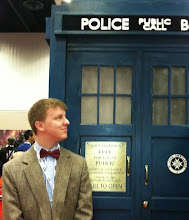Documentaries have always been a great genre to examine some great social experiments. Usually these ideas are recorded in book form, but there are some things that just work better in film. It’s the idea of capturing certain moments with imagery and sound that allows for high emotion and an effective time capsule. That’s why there is a powerful subgenre of documentaries that focuses on observation above anything else.
These types of documentaries are more dangerous than others. A lot of documentaries know their story before going in. It allows for a safety net in case their research or interviews aren’t ideal. For example there is an upcoming movie called Casino Jack and the United States of Money that is about Jack Abramoff and his scandals. It looks really great, but its director Alex Gibney knew there was a story there before he started filming anything. The observational ones require a lot of faith.
They really have to believe in their premises because if it works it could be a long-term commitment. The biggest (and greatest) of them would be the Up Series. In 1964, Paul Almond interviewed fourteen kids when they were seven years old. This is a quote saying “Give me a child until he is seven and I will give you the man.” This series explored the truth in that statement. In the first film, Seven Up, they asked all of them various questions about their lives and society. They were questions to learn about them as people. By itself, it’s a fun movie but as a whole it’s amazing. Every seven years Michael Apted returns to these fourteen people and sees where there are and how they are doing. Often times the greatest stories are the ones by “regular” people. The series so far consists of Seven Plus 7, 21 Up, 28 Up, 35 Up, 42 Up and 49 Up. 56 Up is expected in a year or two. I don’t think anyone involved expected how insightful this series was about the human condition and unpredictable nature of life.
Not every one of these projects lasts for an entire lifetime. The Up Series is a rare example. One that ended up being longer than expected was Hoop Dreams. Initially it was just supposed to be a quick piece, ended up lasting several years. Steve James followed two black teenagers and their basketball career in high school. Of course the film is about much more than that. It really got into their family lives and how they interacted in the community. It’s a three-hour film that is worthy all of the praise it received. Roger Ebert called it the best film of its decade.
Another form of these observational documentaries would be the wide range of nature films. These are obviously less psychological and more interested in showing something new and awe-inspiring on our planet. Planet Earth is another amazing feat and I don’t know a single person who hasn’t been impressed by it. These films are even tougher because their subjects don’t know they’re being filmed. This is a riskier venture but could have some very impressive turnouts like March of the Penguins and Winged Migration.
To wrap this all up, I feel I’m obligated to mention the hybrid of the nature and the human observation documentaries: the newest film Babies. With every risk, there is the chance that it may not be as groundbreaking or revolutionary as hoped. In this movie, Thomas Balmes filmed four different babies from across the planet for one year. It’s an okay movie but it proved that the Up Series didn’t need to start at year zero.
I’m going to forget about Babies in a matter of hours, but these other titles are really impactful works of cinema. I can’t wait to see future examples of this subgenre. I know Richard Linklater has been working on a twelve-year endeavor exploring childhood in a unique way. Not much is known but having seen his previous passion projects, this has the potential to join the ranks as one of the best. As always, time will tell.
http://www.thefilmyap.com/2010/05/07/observing-and-documenting/


No comments:
Post a Comment